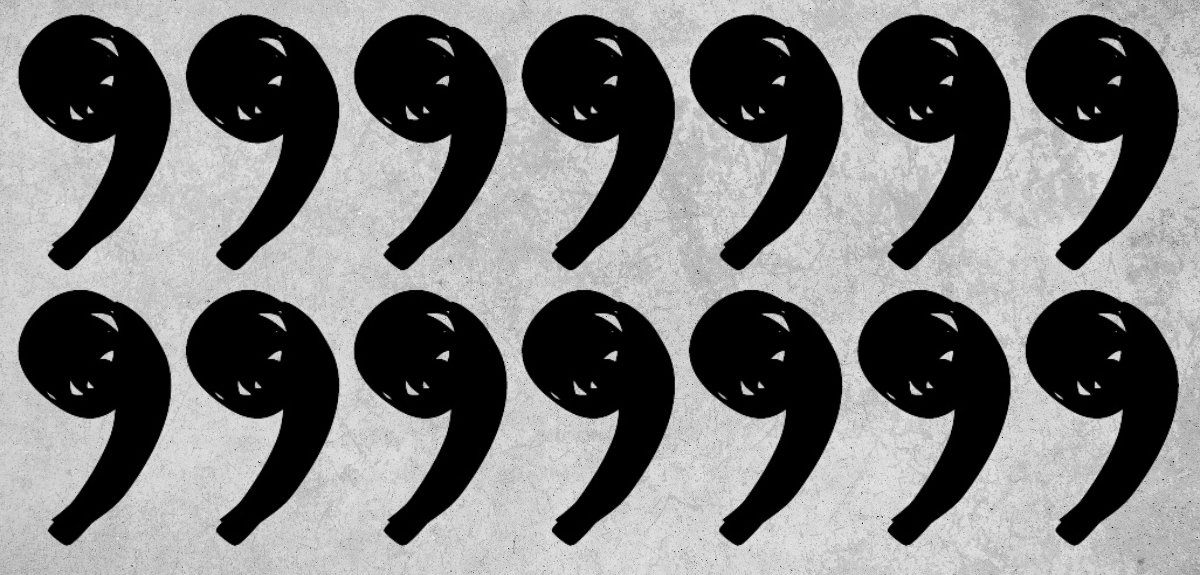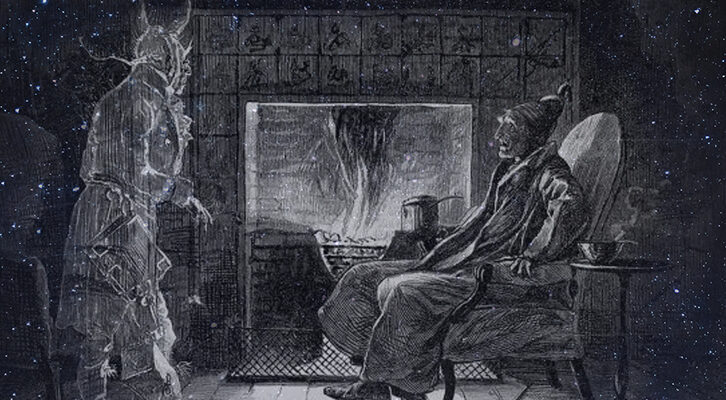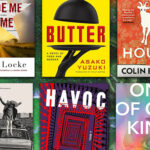“A Thousand Eulogies Are Exported to the Comma.” Of Syntax and Genocide
Nicki Kattoura on the Impossibility of Writing About the Destruction of Gaza
This essay was originally given as a speech given at “A People’s Cinema & Night of Poetry & Song for Palestine” in Brooklyn, New York on January 27th.
*
I don’t know how to use a comma. I am painfully aware of the irony. Not only am I a writer but I was also an editor where part of my job consisted of proofreading, and with a fine tooth comb having to discern if a comma was placed by mistake or missing from a sentence. I know what a comma is, and generally I know its function, but I just don’t think about it too much when I write.
Perhaps it is the way that I speak, my cadence. Sometimes I speak fast without hesitation because I want to express what I’m thinking before it dissipates. Other times I speak slowly, taking pauses where there shouldn’t be any, because I’m still thinking of what to say as I say it.
I’ll send my essay to my friend and unofficial copy editor, Simon, asking if I’ve done it right. If he’s not around I’ll publish my small vignette anyways but will experience immediate anxiety if I discover it’s misused or missing. Grammatical perfection is what most writers strive for, no?
And on Day 113, I don’t want any attention to be diverted from what I wrote to how I wrote it. On the other hand, mistakes, repetition, and jarring sentence structures are much more representative of my state of mind. We are on day 113 and the most well-documented genocide of all times is still unfolding on our screens. There is no sense in this senselessness. No eloquence to be extracted from an airstrike. No metaphor that can aptly describe the horror of there being no functioning hospital that hasn’t already been communicated by reality itself.
There are many ways to use the comma. Some I am aware of, others seem to be a point of personal preference. The comma is always present in a list—and although I don’t fully understand the argument for the oxford comma I use it anyways. For example, it is common to refer to Palestinian geography as separate: ‘48 (comma) the West Bank (comma) and Gaza. This list does the work of normalization. For these are not distinct territories but in fact deeply connected, singular, Palestine—torn apart by settler-colonial annexation and Israeli occupation—the remaining hubs of Palestinian life and the cradle of our resistance.
On October 7th, when Palestinians attached propellers to their paragliders and flew like birds before smashing through the wall that had held them captive for over 17 years, they were not trespassing on Israeli territory and settlements, but returning to land that had been violently taken from them years ago. No, they are not just Gazans, they are Palestinians.
And as the last 113 days have proven, an attack on Gaza is an attack on all of Palestine and represents the struggle for our freedom at the highest level. After all, their operation was titled the Al-Aqsa Flood in protest to the repeated desecration of the Al-Aqsa Mosque in Jerusalem. Gaza was not just liberating herself but unifying and freeing all of Palestine.
The Palestinian that is trapped underneath the rubble is also the Palestinian that is injured. Is also the Palestinian that is displaced. Is also the Palestinian that is dying of hunger and thirst.
I’ll give you another example. Typically, when reciting the devastation of genocide we tend to rapid-fire statistics. To date, 26,000 Palestinians have been martyred (comma) over 60,000 have been injured (comma) over ten thousand are trapped underneath the rubble of buildings and presumed dead (comma) 2 million people have been internally displaced (comma) millions are starving (comma) dehydrated (comma) dying of disease… The comma neatly separates a list of things that are completely entangled, and in the process obscures the degree of violence happening to each individual person.
The Palestinian that is trapped underneath the rubble is also the Palestinian that is injured. Is also the Palestinian that is displaced. Is also the Palestinian that is dying of hunger and thirst. Is also the Palestinian that is sick with disease. Is also the Palestinian martyr. These unspeakable atrocities work in concert with each other. Palestinians in Gaza are not only fated to being injured or only going to be displaced. The intention of genocide is to annihilate by any means necessary. And Israel, with the help of the United States, has demonstrated that they will use every weapon and horror in their arsenal to reach that goal.
Of course I edit and proofread my writing. I learned to read my writing out loud to hear where a pause might help the flow of a sentence. But to read out loud and repeat atrocity after atrocity after atrocity bears difficult on the soul making revision exceptionally devastating. These sentences are not incantations for resurrection.
On Day 30 I was revising an essay I had written four days prior. Originally, the piece mourned the over 9,000 lives stolen by the genocidal onslaught. In revision, I moved the comma one space to the right. 10,000 martyrs. To write one eulogy is unbearable. To write a dozen, an impossible task.
A thousand eulogies are exported to the comma, a tiny line or symbol, that just cannot bear the weight of the lives and aspirations of this many people. People whose lives are as intricate and multi-faceted and contradicting as our own. These sentences are not incantations for resurrection; they are a reality that is unfathomable to people with conscience, and they prove, with ease, the futility of the writing endeavor to either capture apocalypse or mourn its victims.
How else did the movement for Palestine grow beyond any measure without the words and actions of Palestine and her comrades?
Writing feels futile. I repeat myself. I apologize. But it does. And to ruminate on syntax during a genocide feels pretentious and self-aggrandizing. There are Palestinian children who are dying of sleep deprivation and I’m telling you about my inability to use commas. Two Palestinian mothers are killed every single day and I can’t figure out if the cadence of my sentence describing their tragedy is easy on the ear. A comma might inform a pause in this sentence but that is tragically its only function.
I didn’t want to write this speech. In fact, I don’t like it very much. I think it’s repetitive and I’m not sure if what I’m saying has actually illuminated anything you haven’t heard before. You see, I sat down to write and nothing came to mind. I wanted something fresh and new. I wanted to be eloquent. I wanted to stand in front of you and offer a new perspective, perhaps something you hadn’t thought of before. But on Day 113, no, after 75 years, everything has been said to the point that I am dissecting and analyzing grammar in the hopes that it does something. That it reveals something.
I opened Instagram like my anxiety compels me to nowadays and saw a video of a mother carrying her son’s lifeless body refusing to let him go and I couldn’t write. I didn’t even think of writing. I got into a fetal position instead. This is not “inspiration.” This is life-ending, apocalyptic, we have been voyeurs to one of the greatest calamities of our lifetimes. This is not something to write about. This is something to write against. This is something that should call us to action.
My focus on the comma is not indicative of my obsession with grammar but perhaps a culmination. I’ve been spending days consuming Palestinian suffering that I can only bear to think about the comma rather than the words that it encases. Simply put, the process of writing feels futile: I am constantly reminded that a pen is not a sword, a piece of paper is not a shield, and a comma, no matter how much it remains the object of this study, is utterly, utterly meaningless.
But while I might repeat ad nauseam that writing is futile, I know for a fact that it can do something. How else have corrupt journalists, or stenographers, conjured beheaded babies out of thin air but through writing? How else did Zionists convince the world of the Palestinian as subhuman but with a string of words? How else did the movement for Palestine grow beyond any measure without the words and actions of Palestine and her comrades? Why else did Israel assassinate writers like Ghassan Kanafani or Refaat Alareer? If writing didn’t matter, why did I still write this?
Fargo Nissim Tbakhi makes this clear in their brilliant piece, Notes on Craft when they write, “We have to abandon [craft] and write with sharper teeth, without politeness, without compromise. We have to learn, or build, or steal, or steal back, the craft we need for the long Intifada, which we carry with us to liberation and beyond.”
And it is in continuing to write without compromise that we will be able to write of other things: Palestinian life (comma) love (comma) and freedom (period).




















